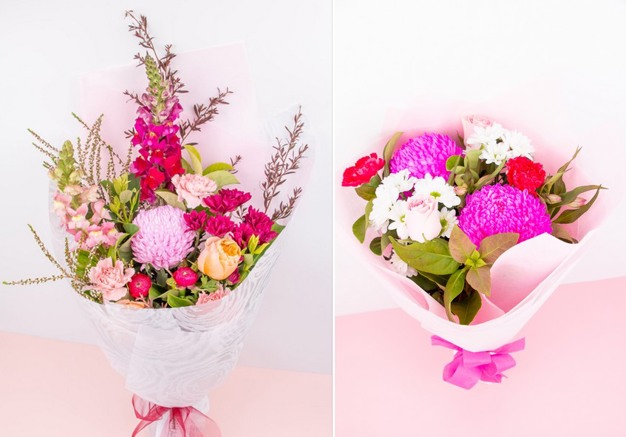For many generations, flowers have been greatly valued for their inherent beauty, captivating scents, and symbolic meaning. No matter if it is a wedding, birthday party, corporate event, or cultural ceremony, flowers possess the ability to enhance the ambiance of any significant event or festivity.

When looking around the globe, flowers hold profound cultural significance in societies around the world, often serving as powerful symbols of emotions, traditions, and values. Aarvi’s Flowers gives some examples of how flowers are revered in different cultures:
● Japanese Culture: In Japan, flowers play a vital role in cultural expressions such as ikebana (flower arranging) and hanami (cherry blossom viewing). Cherry blossoms (sakura) symbolize the fleeting nature of life and are associated with springtime renewal. Chrysanthemums hold a special place as the imperial flower and represent longevity and rejuvenation. Chrysanthemums can bring about good health and long life, making these flowers extremely cherished and beloved.
● Indian Culture: Flowers have deep spiritual and religious importance in India. They are perceived as a bridge between the human and divine realms and are offered in temples, homes, and during religious ceremonies. In Hinduism, flowers symbolize purity and beauty and are believed to bring divine blessings and good fortune. Marigolds are often used in religious rituals and festivals, symbolizing purity and devotion. The lotus holds great significance as a representation of awakening and renewal, frequently linked with divine beings and the realm of the spiritual.
● Chinese Culture: Peonies are revered in Chinese culture for their association with wealth, honor, and prosperity. They are regarded as the "king of flowers" and symbolize good fortune and elegance. In ancient China, peonies were a favorite among the imperial families and were often found in royal gardens. The flower's lush blooms and vibrant colors were seen as a reflection of the emperor's power and affluence. Today, peonies continue to be highly regarded and are a popular decorative element during important occasions such as weddings and festivals.
● Egyptian Culture: Flowers held great significance to the ancient Egyptians, who regarded them as crucial elements in their religious rituals and burial customs. From the lotus to the papyrus, the ancient Egyptians held a wide variety of flowers in high regard, embracing their beauty and spiritual significance in their daily lives. The blue lotus was particularly esteemed, symbolizing rebirth and spiritual enlightenment.
● Greek and Roman Cultures: In ancient Greece, the olive wreath symbolized victory and honor, while the myrtle was associated with love and marriage. The Romans used flowers for decorative purposes and to signify events like triumphs and celebrations. Flowers played a significant role in Roman society, both for their decorative appeal and as symbols of important events. Different types of flowers were associated with specific events and emotions, allowing the Romans to convey messages through floral arrangements.
● Mexican Culture (Dia de los Muertos): During the Day of the Dead celebration, Marigolds have long been incorporated into various cultural practices as a means of honoring deceased loved ones. These vibrant flowers are believed to possess a special power - to guide the spirits of the departed individuals back to the world of the living. In many traditions and ceremonies, marigolds are used to create elaborate altars or decorate gravesites during important events. By offering marigolds as a tribute, people express their belief in the continuity of life and the connection between the living and the deceased.
● Middle Eastern and Islamic Cultures: Roses hold a significant place in Middle Eastern culture, representing not only love and beauty but also a sense of romance and passion. The region has a long history of incorporating roses into its traditions and rituals. The gentle and scented blooms are frequently used as signs of fondness and are widely presented as presents during important events like marriage ceremonies and commemorative milestones. In addition to their aesthetic appeal, roses are also valued for their healing properties and are frequently used in traditional remedies and skincare products.
● Native American Cultures: Different tribes around the world have unique cultures and traditions, and this includes their own floral symbolism. Flowers hold significant meanings in various indigenous cultures, representing different emotions, beliefs, and values. For example, in Native American tribes, the sunflower is often seen as a symbol of harvest and prosperity, while the lotus flower holds deep spiritual significance in Eastern tribes.
For more information:
Aarvi's Flowers
Phone: 0424 611 983
hello@aarvisflowers.com.au
aarvisflowers.com.au
